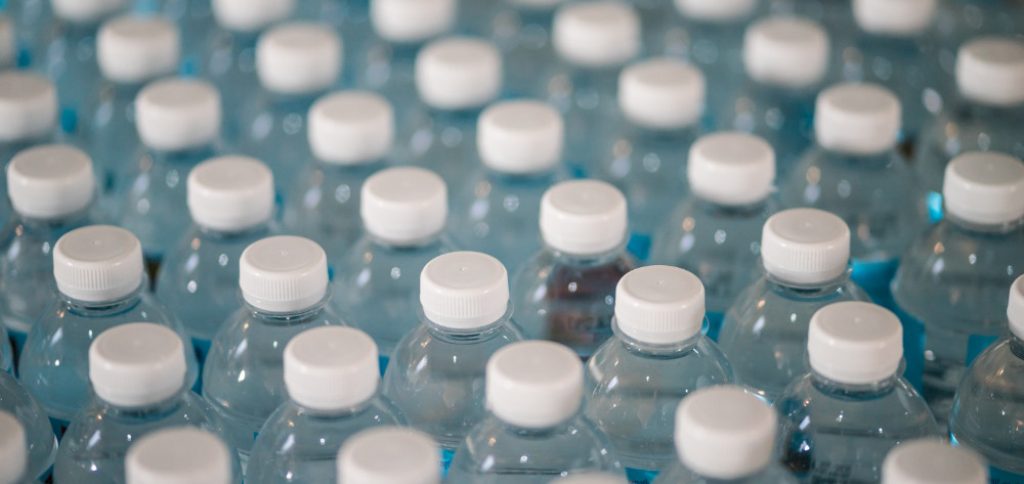Plastic and sustainability – can the two be reconciled?

Plastic is an important raw material in the beverages industry. It seems the industry simply can’t do without it – at least for right now. Plastic bottles are the default for filling beverages. Except of course for some alternatives such as glass and cans. Over the past years, a number of manufacturers have been trying out ecologically sound plastics. But is this enough? For some time now, the media has been inundating the public with images of plastic waste in the oceans and discussions about the dangers of microplastic.
People are increasingly trying to avoid plastic. Sustainability has become a buzzword. Influencers are flooding social media platforms with tips on how to avoid plastic. Celebrities have sounded the alarm to protect the world’s oceans. Recently, National Geographic also launched the “Planet or Plastic” initiative – an anti-plastic-waste campaign supported by celebrities.
Media entrepreneur Peter Christmann founded the non-profit organization Orange Ocean to promote ocean conservation. Numerous organizations – such as Sea Shepherd with its impressive and emotive YouTube video – have branded plastic waste as the cause of unprecedented decimation of marine life.
Many initiatives have declared avoiding plastic as their goal. Pressure on the beverages industry, with its high output of plastic bottles, is intensifying. It’s there that sustainable beverages packaging is becoming a must – both ecologically and economically.
The packaging industry’s global responsibilities
It is certainly high time for the beverage industry to act. Apart from rising social pressure and the manufacturer’s responsibility toward the environment, the reduction of plastics is being regulated at an increasing rate. In Germany, a new packaging law requiring manufacturers to optimize the ecological footprint of their packaging material will take effect in 2019.
This means using materials that are easy to recycle or are made from recycled material. The European Union has proposed rules stipulating that all plastic packaging is to be made exclusively from recyclables and reusable materials by 2030. Supermarket chains and retail stores are beginning to ban single-use plastic from their shelves. And China has even stopped accepting plastic waste from Europe.
Bioplastics: an innovative and environmentally compatible solution
Biodegradable “bioplastics” consisting of renewable raw materials are gaining currency. Plastic made entirely from biomass is biodegradable and makes economic sense, since the price of crude oil as the base material is on a constant rise.
There are already bottles made completely of bio-based PLA – a special polymer produced from fermented corn. No crude oil is needed to manufacture them and they completely biodegrade in industrial compost facilities after 80 days. Sounds perfect.
But to date, bio-based PLA is in short supply, the bottles are pricey and a recycling chain has yet to be established. In the main, ecological success is generally linked to a functioning recycling chain. The worldwide shortage of functioning deposit and recycling systems could change as relevant legislation is passed in the future.
Valuable plastic
Improving the ecological footprint necessitates introducing empty containers into the recycling chain rather than carelessly discarding them at the expense of the environment. New technologies could potentially improve recycling rates.
For example, the Recereum blockchain platform is based on a digital reward system whereby consumers who deposit their empties at collection points receive a token that they can in turn exchange for gas or electricity.
Another initiative that promotes proper recycling is Plastic Bank. Consumers who hand in plastic waste at certain collection points receive a reward. This means value is attached to plastic waste and consumers have an incentive to collect and hand in.
Creative upcycling solutions: designer glasses and oil made from packaging waste
A compelling idea: In collaboration with ocean activist Cyrill Gutsch and his Organization “Parley for the Oceans”, the beer brand Corona has launched the “Clean Waves” platform. Designers manufacture products from plastic waste that has been collected from beaches and the sea. Their first offering is a sunglasses collection.
And companies in other industries are also considering sensible ways of using existing packaging waste. The Austrian energy company OMV, for example, has developed a process whereby oil can be recovered. Through this process, heat and pressure transform used packaging into synthetic oil.
Recycle, reuse and reduce
In order to consume less plastic, filler companies can reduce their material consumption. Not only does this save raw materials and reduce the mountains of waste produced, it also saves on transport costs because less material immediately translates to less weight.
And all measures that save plastic are based on three solid principles: recycle, reuse and reduce. Plastic debris that pollutes the environment and oceans is breaking new records every year. According to the German Nature Conservation Association, the previous average of 1.5 million metric tons produced every year has risen to nearly 300 million metric tons. And most of this winds up in the sea.
The United Nations Environment Program (UNEP) reports that up to 18,000 pieces of plastic are floating in every square kilometer of the ocean’s surface. And that’s not counting the waste hidden from view at the bottom of the sea. The big problem: plastic breaks down at an extremely slow rate in the sea and expels tiny particles in the process.
According to Sea Shepherd, over one million marine organisms die every year as a result of these particles. At the end of the day, this also affects people: Toxic microplastic lands on our dinner plates when we eat fish.
Profiting from sustainability
For obvious reasons, marketing emphasizes sustainability wherever possible. At the point-of-sale, purchasing decisions are made on the basis of “green” messages. A TNS Infratest survey, which was commissioned by the German Packaging Institute, found that over half the people surveyed felt that the information they needed to make an informed decision on important packaging aspects was either poor or non-existent.
The consumer both wants and needs reliable information and transparency to be able to recognize innovative raw materials and sound recycling solutions. When the next drinktec comes along, we will see how the beverage industry handles the ecological challenges it faces.
